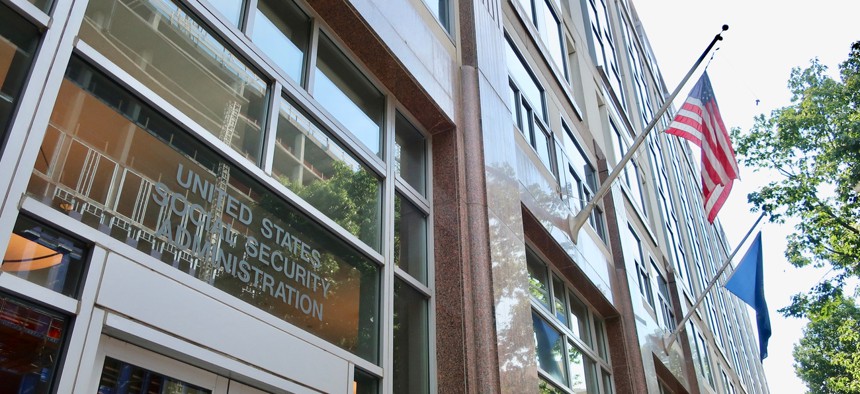
Shutterstock.com
Social Security Unions File Formal Complaints Over Lack of Emergency Sick Leave
More than two months after the deadline for all employers to offer workers pandemic-related emergency paid sick leave, three unions say the agency is violating the law.
Officials at three federal employee unions have filed formal complaints against the Social Security Administration for refusing to fully implement a law providing emergency paid sick leave to workers related to the coronavirus pandemic.
The American Federation of Government Employees and the National Treasury Employees Union both filed internal grievances this week accusing the agency of not complying with the sick leave law and refusing its collective bargaining obligations over the implementation of the new leave category. And the Association of Administrative Law Judges has filed an unfair labor practice complaint with the Federal Labor Relations Authority.
The Emergency Paid Sick Leave Act was signed into law in mid-March as part of Congress' first bill responding to the COVID-19 outbreak. It provides employees in both the public and private sectors with up to 80 hours of paid sick leave, as well as up to 10 weeks of paid leave at two-thirds of their regular pay for workers who have child and dependent care responsibilities due to school and daycare closures related to the pandemic.
This new benefit was to take effect April 1, and the Labor Department announced it would give employers a "non-enforcement period" until April 17 to allow employers to make changes to their payroll system to offer the leave. But to date, union officials said the Social Security Administration has dragged its feet.
The agency has faulted the Interior Business Center, which does payroll for Social Security and several other agencies, for being unable to implement the coding changes needed until July. In the interim, officials have insisted that employees should file for weather and safety leave, but only if they first sign a form acknowledging that they could become "indebted" to the agency via overpayment and limiting their right to seek an overpayment waiver.
For its part, the Interior Business Center disputes Social Security Administration officials' laying of blame.
"All of IBC's customers can use EPSLA," a spokesperson told Government Executive. "IBC has provided guidance to our client agencies about how to code employees' time sheets using an interim process while IBC is working to develop new coding in our systems that will precisely calculate the new EPSLA leave payments."
Leaders at multiple Social Security unions have said that the agency has repeatedly rebuffed suggestions on ways to code the new two-thirds pay leave without risking overpayments, including filing part of a leave claim under weather and safety or administrative leave, and the remainder as unpaid leave. In its grievance, AFGE accuses the agency of improperly intimidating employees into not taking leave that they are entitled to.
"The administration's failure to implement the CARES Act [in a timely manner] intentionally causes bargaining unit employees to incur debts that are required to be repaid to the SSA, which unlawfully discourages BUE participation in the emergency sick leave program," the union wrote. "SSA has also unilaterally, and prematurely, determined that debt waivers will be denied in violation of the required considerations in the debt waiver process."
Ralph de Juliis, president of AFGE Council 220, said that even when employees sign the form, they've been blocked from access to the benefit.
"Even after some people said, 'Well I need this leave,' and signed the form, management said, 'You can't put in for it yet,'" he said. "Basically we feel like this is really a slap in the face of employees who have stepped up to the plate to serve the American people."
De Juliis said the form requiring employees to acknowledge an "indebtedness" and that overpayment waivers will be denied violates the leave law and the union's collective bargaining agreement.
"The law does not say that if there are overpayments, they cannot be waived," he said. "If there are overpayments because the agency has failed to act properly or made a mistake, that's not the employee's fault, and not being at fault is the first element of any waiver consideration."
Although the Labor Department is responsible for ensuring employers provide the leave as required, de Juliis said the unions believe they must exhaust all administrative remedies within federal labor management procedures before they can file a complaint with an outside agency or the courts. The Social Security Administration did not respond to a request for comment.
NEXT STORY: Social Security Services and Scams







